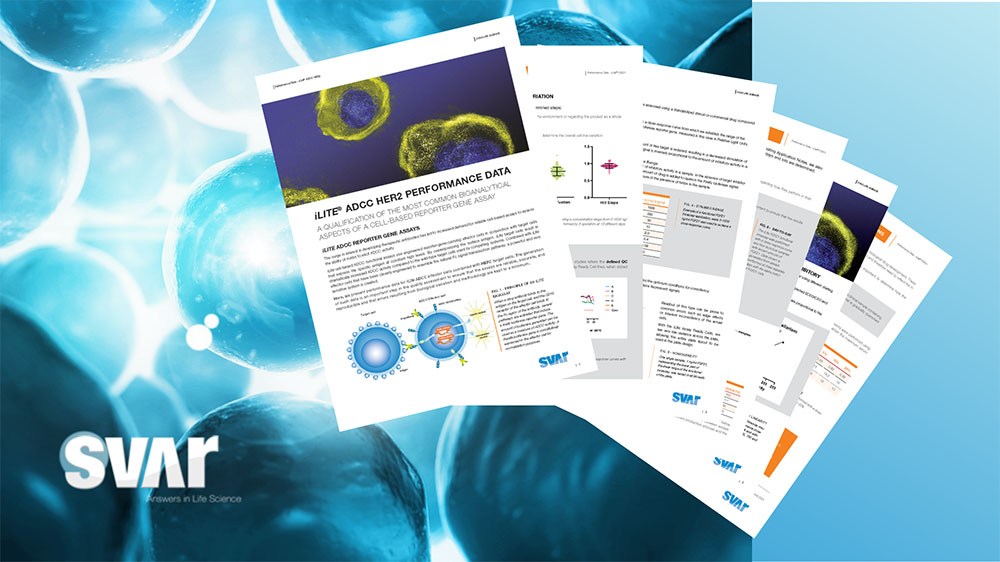- Other Products
- CCP
iLite cell-based ADCC functional assays use engineered reporter-gene-carrying effector cells in conjunction with target cells that express the specific antigen at constant high levels. By overexpressing the surface antigen, iLite target cells result in dramatically increased ADCC activity compared to the wild-type target cells used by competing systems. Combined with iLite effector cells that have been cleverly engineered to resemble the natural Fc signal transduction pathway, a powerful and very sensitive system is created.
Here, we present performance data for iLite ADCC effector cells combined with HER2 target cells. The generation of such data is an important step in the quality assessment to ensure that the assays are reliable, accurate, and reproducible and that errors resulting from biological variation and methodology are kept to a minimum.


iLite cell-based ADCC functional assays use engineered reporter-gene-carrying effector cells in conjunction with target cells that express the specific antigen at constant high levels. By overexpressing the surface antigen, iLite target cells result in dramatically increased ADCC activity compared to the wild-type target cells used by competing systems. Combined with iLite effector cells that have been cleverly engineered to resemble the natural Fc signal transduction pathway, a powerful and very sensitive system is created.
Here, we present performance data for iLite ADCC effector cells combined with HER2 target cells. The generation of such data is an important step in the quality assessment to ensure that the assays are reliable, accurate, and reproducible and that errors resulting from biological variation and methodology are kept to a minimum.
In this performance data study, we cover the following aspects of the assay: